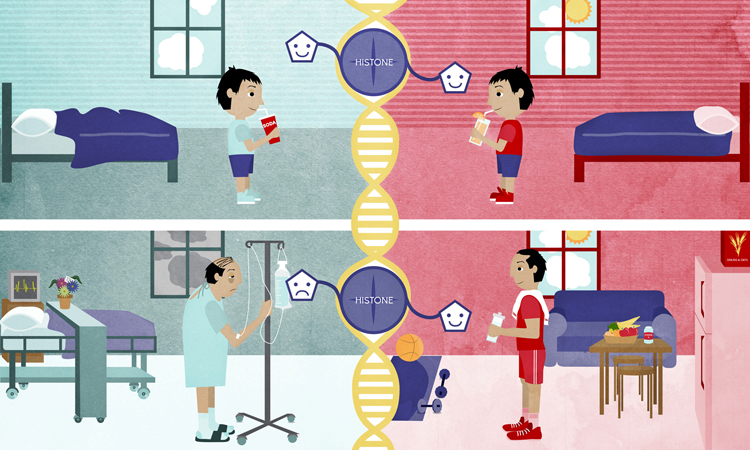Epigenetics
What is epigenetics?
Just when you thought you understood genetics, now comes epigenetics…
While genetics is the study of the DNA code that describes how to make all our cells and tissues, epigenetics is the study of how the body adds and removes chemical tags to our DNA, to turn certain genes on or off. This pattern of chemical tagging is generally passed on from parent cell to daughter cell, along with the DNA.

Figure 1. Our genetics don’t have to be our destiny. Identical twins start with identical DNA (yellow) and epigenetic tags (smiley faces). As they make different life choices and experience different environments, the DNA sequence generally stays the same, but their epigenetic tags can change.
How do our cells make use of epigenetics?
Epigenetic tags act as kind of cellular memory, telling the body which genes should be turned on or off in different parts of the body. Throughout life, the positioning of these tags will change to allow for growth, development, and learning. At the same time, epigenetic tags can also be influenced by how we lead our lives and the environment in which we live. For example, certain environmental stresses can cause a cell to adjust its epigenetic tags. While this may help the cell adapt in the short term, in the long term, in can contribute to disease and aging. Fortunately, epigenetic tagging is reversible, and if we can learn to control it, we will be able to develop novel approaches to improve health and quality of life for all of us.
